GLOBAL ATLANTIC FELLOWS GUIDE 2023-2024






FOR RACIAL EQUITY
FOR SOCIAL AND ECONOMIC EQUITY
FOR EQUITY IN BRAIN HEALTH



FOR SOCIAL EQUITY
FOR HEALTH EQUITY IN SOUTH AFRICA

FOR HEALTH EQUITY IN SOUTHEAST ASIA
FOR HEALTH EQUITY US + GLOBAL

On behalf of the Atlantic Fellows programs and the Atlantic Institute, welcome to the Atlantic Fellows lifelong community.
The Atlantic Fellows global community is made up of a network of social change leaders from seven Atlantic programs across the world. At the end of your in-program fellowship year, you join this cross-program community as part of the next step in your journey as a lifelong Fellow — locally rooted and globally connected. We aim to create a catalytic global community of social change leaders who together can build a more equitable and just world.
We recognize that leadership is not only about individual achievement but also about connecting with others and creating opportunities for collective leadership and action. Atlantic Fellows are an extraordinary group of courageous, compassionate and collaborative thinkers and doers, and we hope that you will find that this community is a place of inspiration.
As a Global Atlantic Fellow, you will have access to development opportunities from your local program and the Atlantic Institute. This includes the Global Atlantic Fellows Annual Convening (following the completion of your local program), thematic convenings, residencies, learning labs, webinars and grants. These are funded through the vision and generosity of The Atlantic Philanthropies and are bespoke offerings co-designed with and for Fellows to support a flourishing community of incredible changemakers. It is a purposeful, values-driven endeavor, which impacts change on behalf of others. It is also a gift exchange — with benefits as well as obligations.
As part of the obligations, we ask that members of this community give expression to our values in the following ways:
● Showing up with kindness and integrity as you connect with people who bring different perspectives and experiences. You will be connecting with people who speak a different language to you and with those who see the world through a different cultural lens to yours. Fellows also bring different experiences of injustice and pain, which may be as a result of colonization, enslavement, war, displacement or structural racism. This is what makes our community special as we connect across diversity and root causes of inequities but also shared reimaginings and solutions for a better world. Being a member of this community can, therefore, be a space of discomfort, so we ask that you:
● Share your own perspectives with authenticity, grace and care.
● Sometimes step back and listen to others to ensure there is space for perspectives/ narratives/ stories other than your own.
● Engage in courageous conversations (including disagreement) with kindness and empathy — deconstruct but also focus on rebuilding and *(k)new solutions.
● Recognise your own privilege and power and take action to challenge the status quo and lived realities.
● Feel free to reimagine a (k)new world with others in this community.
● Be mindful of privacy, both in terms of what you share following an experience and in your use of social media, including how you share your experiences and photographing others.
● Be leaderly and respectful in the way that you honor the gift of the Atlantic community:
● Show up on time for flights, transfers, programming and be present and respectful of each other and the convenors.
● Be generous of your time and your resources in the spirit of reciprocity.
● Be kind and gracious in the receipt of resources. It is a community of love, but the staff are not your personal travel agents or assistants!
● Share the results of your experiences as an Atlantic Fellow inside and outside of this community.
The “Global Atlantic Fellows Guide” outlines what we can offer you now you have completed your program and explains why we act as a community to realize a healthier, fairer, more inclusive world.
Warmest regards,
EVIE O’BRIEN, Executive Director of the Atlantic Institute*(K)new solutions draw on longer histories, knowledge, ways of being but are also made possible by leaps in innovation to catalyze our community to (k)new thinking and action through the wisdom we collectively hold and the possibility of the unimagined.

Having completed one of the seven Atlantic Fellowship programs, you have become a Global Atlantic Fellow and joined the global Atlantic Fellows program community, supported by the Atlantic Institute. You will find that we work in partnership with Atlantic Fellows programs on specific events and offerings, as we seek to support you in your collective work to address health, racial, social and economic issues, and create positive change in your communities and beyond.
There are nearly 700 Global Atlantic Fellows, who are currently active in around 70 countries. As individuals, you are already likely to be having a significant impact on your communities but by working together, this growing global community can be truly transformative worldwide.
Atlantic Fellows are changemakers from diverse geographies, backgrounds and sectors that include academia, government, civil society, health, law, environment, education, the creative industries, the private sector and more. By collaborating together on developing innovative solutions, social changes can occur more rapidly. Successful projects, in time, can be rolled out across different countries, with adaptations grounded in the realities of different local and regional contexts. Our strength comes from the intersection of thought leadership, creativity and passion, and hands-on work that translates intent into action. We celebrate the community’s diversity as a catalyst for shifting perspectives, seeding ideas and inspiring new possibilities.
This booklet outlines ways in which the Atlantic Institute can support you as Global Atlantic Fellows. Our mission is to provide you and Atlantic Fellows program staff with the networks, architecture and resources to connect, learn and act to address the underlying systemic causes of inequities, locally and globally. The Atlantic Institute has four strategic goals:
● Atlantic Fellows Community: To build a catalytic lifelong community of leaders who connect, learn and collaborate across diverse perspectives.
● Programming and Impact: To provide courageous programming (face to face and virtual) that supports Fellows and staff to shift narratives, shape policy and create (k)new solutions.
● Global Network and Sustainability: To build an extended community with strong strategic partners and alliances.
● Learning and Innovation: To drive a culture of reflection and learning, allowing the Atlantic Institute to be responsive to changing needs, new technologies and brave ideas.
The Institute will promote collaborative endeavors and shared approaches, and connect the Atlantic Fellow community to other equity-oriented initiatives and organizations. The Atlantic Institute seeks to amplify each program and each Fellow’s potential to have a positive impact on the world, resulting in a collective groundswell of action that changes narratives, shifts policy and creates (k)new solutions for lasting systemic change.
Together, we are building a fairer, healthier and more inclusive future where all communities can thrive.
The Atlantic Institute is hosted by the Rhodes Trust in Oxford in the United Kingdom. The Rhodes Trust at the University of Oxford brings together and develops exceptional people from all over the world and in all fields of study, who are impatient with the way things are and have the courage to act. To find out more, go to: www.rhodeshouse.ox.ac.uk
In recent years the Rhodes Trust has also partnered with several other remarkable organizations to create:
● The Mandela Rhodes Foundation, focused on providing postgraduate educational opportunities and building exceptional leadership capacity in Africa.
● The Schmidt Science Fellows program, seeking to expand the horizons of the next generation of leaders and innovators in the natural sciences, engineering, mathematics, and computing.
● The Rise program, an initiative of Schmidt Futures and the Rhodes Trust, which will build a network of exceptional young people who are committed to helping others throughout their lives.

The Atlantic Institute is aligned with the visions and missions of the Atlantic Fellows programs. The Atlantic Institute’s values, which guide our decisions and how we act, are:
We aim to be authentic, to actively share, to listen and to be receptive, and to approach all that we do with integrity, transparency and empathy.
We seek to be intentional in our expression of care by demonstrating generosity, empathy and kindness in our interactions with others, whether in agreement or disagreement. We aim to support people through a genuine concern for the well-being of all and a recognition of our shared humanity.
We champion creativity in each other and in ourselves. Through agile thinking, courageous and confident conversations, the freedom to reimagine, taking risks and leaning into difference, we aim to create the conditions for (k)new solutions for a better world.
We aim for radical inclusion, going beyond intent to action, embracing our proximity to others and recognizing our shared humanity. We aim to listen with humility and reach out to those who stand at the margins while acting purposefully to shift power to create an equitable environment for all.
We recognize the knowledge each one of us holds; we respect the rights of others and celebrate our differences as well as our shared humanity. We commit to taking care of others, respecting, supporting, serving and lifting each other in solidarity.
Being courageous means recognizing our power and privilege; and taking action to challenge the status quo and surface lived realities. We also have to recognize when to step back and listen to others to try to ensure that there is space for diverse voices and perspectives to emerge.
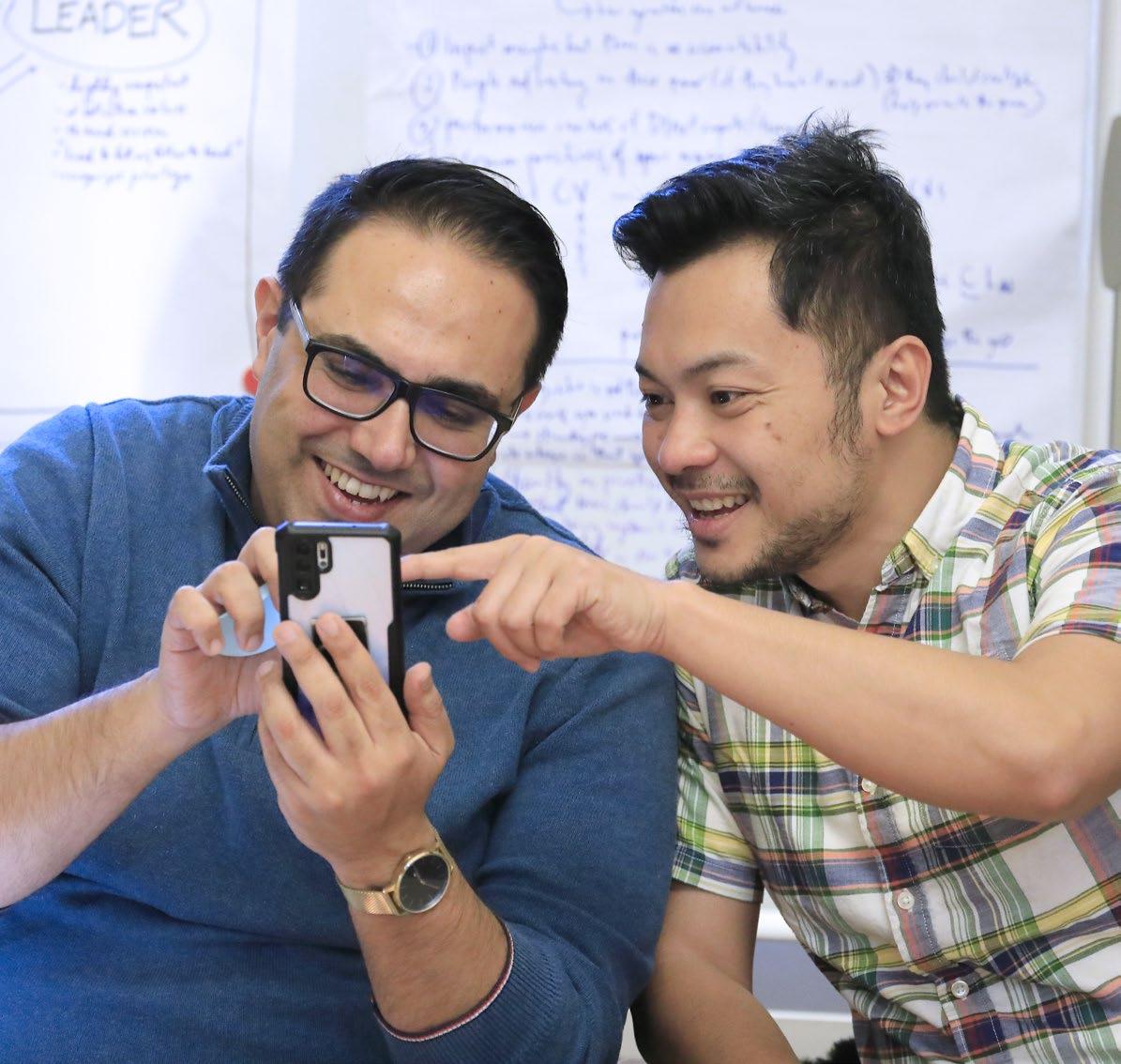
Building a catalytic community takes many forms and is shaped by the connections that we can create, both formally and informally. The Institute team seeks to create the right conditions for you to meet other Global Atlantic Fellows worldwide. The Atlantic Fellows Hub, an online portal at af-hub.org , is the first place to go when you become a Global Atlantic Fellow. Just scan the QR code below!
● You will need to access the Hub to register for all the Institute’s Events and apply for Grants .
● Connect with other Fellows by filling in your profile and learn about the other Fellows too.
● Reach the whole community by sharing messages on the Live Feed.
● Keep up to date on the latest Community News and offerings from the Institute.
● Share and search for lots of valuable information and content on the Knowledge Exchange.
● Access services to support you in your work in the Fellow Resources .

Once you have graduated, your Atlantic Fellows program will give the Atlantic Institute your name, so we can create your @atlanticfellows email address.
Go to gmail.com to activate your atlanticfellows.org email account.
When you first log in, you will see an email in your inbox inviting you to activate your Hub account. After that, it is simple. You can access the Hub by putting the following url in your web browser af-hub.org. There is also a downloadable “Atlantic Fellows Hub” app on Android and iOS systems.
If you experience any problems, contact the Institute’s Technology Platforms Lead, Sukh Sanghera, at: s.sanghera@atlanticfellows.org.
“
An
You can use the Live Feed on the Atlantic Fellows Hub to connect with the whole Atlantic Fellows program community in personal and meaningful ways. It is a simple process to share details here about your upcoming events, interesting job opportunities, personal updates or invitations to meet up with others in your part of the world. Post and edit your photos, links and text, which others can “like,” comment on and share.
Fill in the fields of your profile on the Connect section of the Hub. It is also the place to learn about the other Global Atlantic Fellows as each profile will contain their primary email address, interests and where they live in the world.

The Knowledge Exchange is a knowledge-sharing tool accessed via the Hub. See what others have shared, such as photos, articles, blog posts, poems, toolkits, webinar recordings, videos, podcasts, guidance and reports. The Knowledge Exchange has comprehensive and advanced search functionality, including the ability to transcribe and index every word in video files — even the spoken word is searchable! Share your memories, experiences and learnings with the community! The Knowledge Exchange is accessed using your activated @atlanticfellows email account single sign-on. Then go to the “Knowledge Exchange” tab on the navigation bar of the Atlantic Fellows Hub. If you have any difficulties accessing it, please email Sukh Sanghera at: s.sanghera@atlanticfellows.org , who is always happy to help.

Igbo word comes to mind, ‘Igwebuike,’ which means there is strength in community. And community is what the Atlantic Fellows Hub offers all Atlantic Fellows. ”
IFEANYI NSOFOR, Global Atlantic Fellow for Health Equity U.S.+ Global
“
I feel fortunate to be part of the Hub community where we can connect, share, learn and support each other, no matter where we are in the world. ”
RENNTA CHRISDIANA, Global Atlantic Fellow for Health Equity in Southeast Asia

The Global Atlantic Fellows Annual Convening is designed to formally welcome you to the global Atlantic Fellows community. The Convening heralds the start of the process in which the Institute supports you to work collaboratively with Fellows from other programs for fairer, healthier and more inclusive societies. For most Fellows, the Convening will be the first in-person interaction with the global community. The Convening aims to foster cross-program connection, cultivate a sense of belonging to the global Atlantic Fellows community, facilitate open dialogue between diverse perspectives and, finally, encourage collective action to address inequities.
The Convening is Fellow-centered — from the co-creation of the event activities to profiling the work and perspectives of Fellows in panels and sessions, while also providing opportunity to hear from global leaders and experts from multiple disciplines. The Atlantic Institute creates a co-design group with 14 Fellows (two from each of the seven programs) and representatives of the Global Atlantic Fellows Advisory Board (GFAB), who decide upon the theme of the Convening, choose the activities and speakers, and develop the overall feel and focus of the event. We recognize that the global Atlantic Fellows community is comprised of leaders working tirelessly to meet the needs of their communities and vulnerable groups, so making time to focus on well-being is important too. There are opportunities for meditation, exercise, artistic expression and reflection as well as access to trained psychologists who are available onsite during the Convening.
Art can make a difference. We believe that the arts are an avenue for spurring engagement, insight and action that can achieve transformation. Artistic interludes are woven into each day of the Convening as Atlantic Fellows and program staff play instruments, perform songs, plays and poetry, and come together through dance and music. Engaging with the arts also cultivates a shared understanding of each other’s stories, traditions and cultures.

The Global Convening has become the cornerstone event for sparking collaborative work to address social, economic and health disparities. Fellows who have attended previous annual convenings have gone on to develop a number of impactful projects. For example, one group of Fellows worked together on a project to elevate Indigenous mental health practices, another group on technology that can reduce risks to maternal health, others are engaged in cross-program movements for racial equity and justice. The Institute aims to bring Atlantic Fellows together to form a supportive global community from which a rich diversity of knowledge and skills surfaces in collective work to tackle long-term, systemic inequities.

“ It was a transformative experience. It allowed me to become aware of the community to which I belong and to consolidate a spirit of networking and integration. I was able to plan new collaborations and, above all, build new human ties. ”
ADOLFO GARCIA, Global Atlantic Fellow for Equity in Brain Health

Do you want to know more about the grants and support available that could help you in your work for equity? Are you curious to know more about the cross-program Atlantic community? Regular information sessions are also held to update Fellows on what is on offer and to hear from Fellows who are working collaboratively. Look out for the “Community Build Information Sessions” that are regularly promoted in the “Events” section of the Atlantic Fellows Hub!
We regularly host community calls based on regional or thematic interest. These help strengthen the bonds between Fellows and allow for free-flowing conversations exploring possibilities and ways to engage. In times of particular distress, maybe due to harrowing events or emergency situations at home, Global Atlantic Fellows can also seek support from the Institute to set up calls that create spaces for movement-building and activism with the broader global community. There have been global Zoom calls in response to Fellows’ concerns about outbreaks of violence or cases of worsening security in regions of the world. The Institute team is always on hand to help if you want to know more about how to facilitate such calls.
The Institute offers Global Atlantic Fellows the opportunity to receive coaching on the Atlantic Fellows Peer Group Mentoring Program. The training is a powerful mechanism for cascading core coaching skills and you can experience the power of peer-to-peer learning. Peer mentoring groups of four to five Fellows can then meet regularly, acting as supportive spaces where Fellows talk about current issues, aspirations and projects. The Institute helps select Fellows into their peer groups, matching individuals with others who might share similar challenges. The sessions are a place of valuable feedback, with the role of others in the group being to challenge and support in equal measure to equip you on the next steps of your leadership journey.

“ I found solace and support in the Atlantic Fellows Peer Group Mentoring Program. On it, there were various Atlantic Fellows from different equity fellowship programs and the counsel and support sustained me. ”
DORAH MAREMA, Global Atlantic Fellows for Racial Equity
The Institute hosts or co-hosts Social Spaces as convenings for Global Atlantic Fellows and program staff to enjoy themselves and get to know others in the community. They are fun occasions that foster a sense of belonging and connection, and they are intended to raise the spirits — all of which helps collective work thrive. We have held meals, exhibitions and classes as Social Spaces and they can be virtual or in-person events. We are always open to your ideas for new Social Spaces!
As well as the support of the Institute’s program and impact leads, we can call on a range of specialists to support you in your collective activities with other Global Atlantic Fellows. Groups that are working together can engage with the program and impact leads to discuss options on how collaborative work can begin, be accelerated, expanded, refined or reviewed. For more information, click on the Hub’s “Fellows’ Resources” tab (af-hub.org/page/resources) to find “Facilitators and Specialist Advisers” or search in the Knowledge Exchange.
Examples of what you can access:
Specialist facilitators ease the process at meetings with other Fellows. For example, you might want a facilitator to help at meetings to build trust, brainstorm ideas, identify shared interests, plan projects for impact or consider which stakeholders to approach.
Monitoring, evaluation and learning specialists are available to help you explore how you might best understand and capture the impact of your cross-program work for equity and embed this into your work from the outset.
Communications advisers can provide support in promoting your activities aimed at crossprogram connection and collaboration. You might want to discuss photography, videography, copyediting and design work.
An introduction to our partners might be useful to your and your cross-program work. The Institute team can help broker useful connections with a range of local, regional and global organizations.

The Atlantic Community Cafe is offered as a way to meet other members of the Atlantic Fellows community easily and effortlessly. It creates spaces for light, serendipitous conversations that could develop into closer connections, mentorships and friendships over time. After signing up, you will receive an email on the first day of the month containing the email address of another member of the community generated completely randomly, so you can then arrange to meet online or in person. To register, click on the Hub’s “Fellows’ Resources” tab and you will find the “Atlantic Community Cafe” at the bottom of the page.
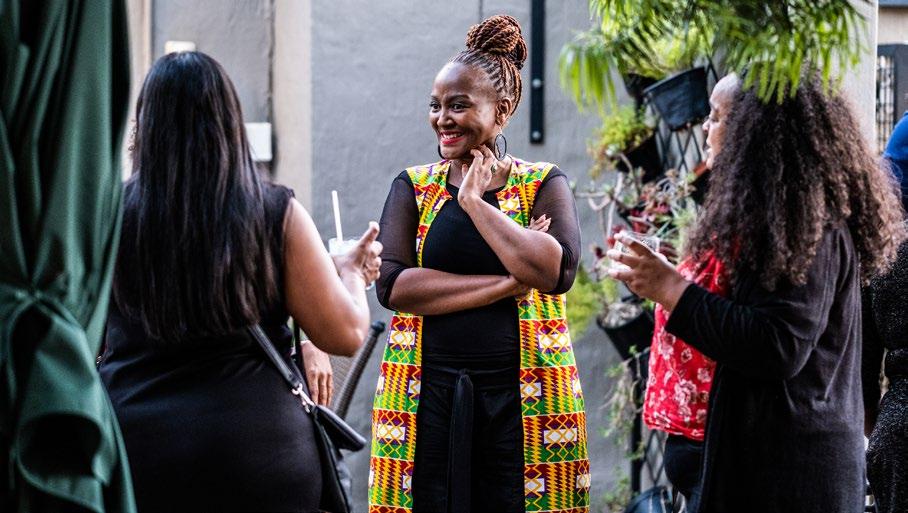
Leaders-in-Residence spend six months to one year with the Institute, working on strategic issues relating to the global Atlantic Fellows program community and/or the Atlantic Institute, based on the needs of the Atlantic Institute, the Atlantic Fellows programs and/or the Atlantic Institute Governing Board. The Leaders-in-Residence offer direction and thought leadership to the Atlantic Institute and Atlantic Fellows community. They may do this through compiling a detailed research report or book that examines a particular topic identified by the Atlantic Institute and/or the program executive directors or members of the Global Atlantic Fellows Advisory Board (GFAB). Leaders-in-Residence can be Global Atlantic Fellows or they are drawn from outside the global Atlantic Fellows program community. Upcoming positions are always advertised on the Hub; there will be XR residencies in 2023/24.
Whilst the Institute is not an employer of Fellows, on occasion we offer consultancy work to the global Atlantic Fellows program community to support some of the Institute’s activities. For example, a Fellow consultant worked closely with the Institute team to provide programmatic and operational support for the Global Atlantic Fellows Annual Convening in Thailand; others worked on our climate strategy. The consulting agreements are always for a limited duration and any openings for such positions are advertised on the Hub.
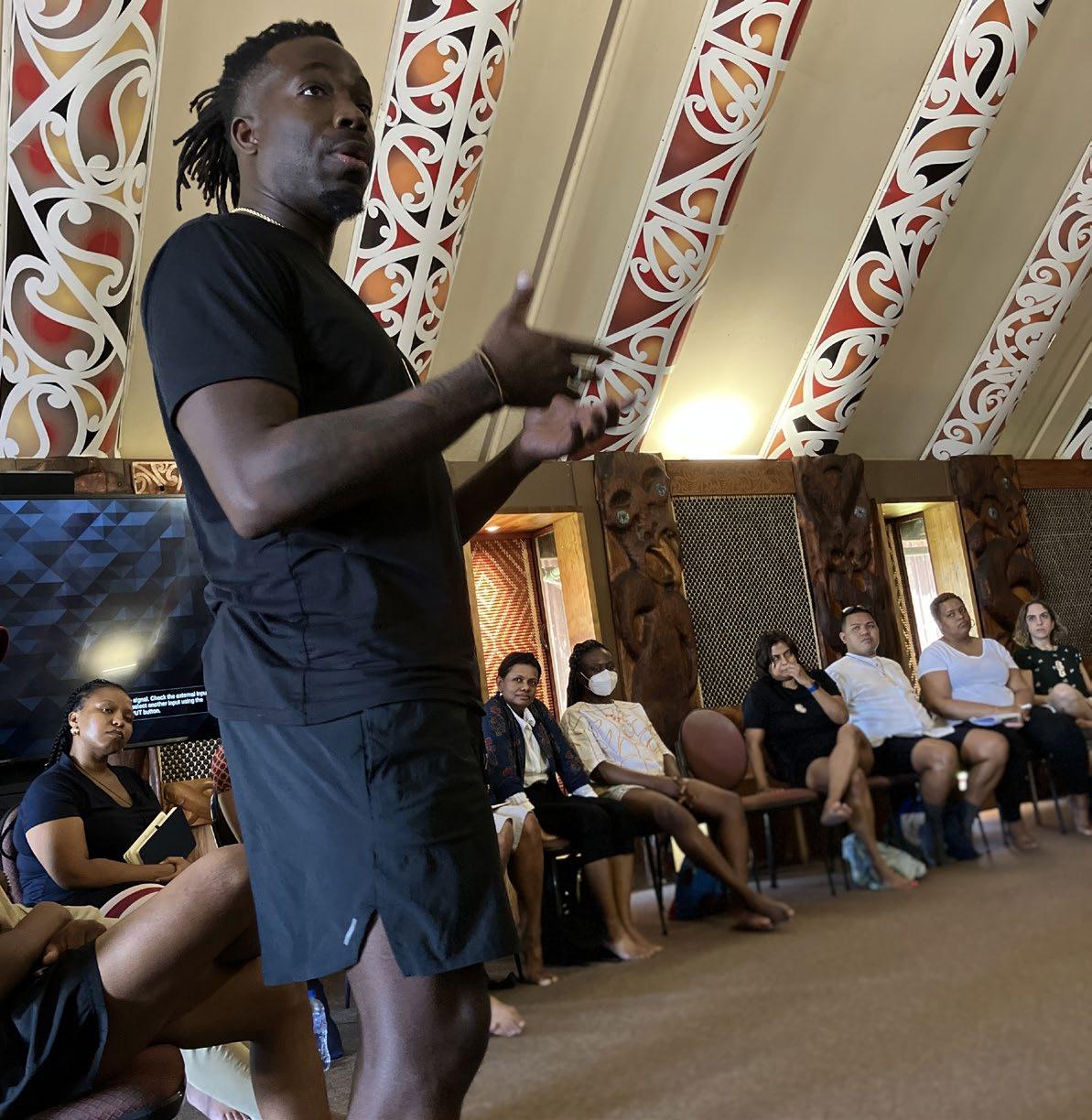
The Institute develops and supports a wide range of world-class programming that is open to Global Atlantic Fellows. The content, developed by the Global Atlantic Fellows as well as program staff, is focused on ways of helping the community to connect, learn and be inspired and take action. The online and in-person convenings can be classes, workshops, convenings, labs and webinars, with a global lens to look at issues and topics for discussion. We explore the three areas of our theory of change: narrative, (k)new solutions, and systems-thinking and policy. We also offer ongoing support intended to strengthen your leadership and extend your impact.
The thematic convenings are focused on particular multidisciplinary topics or issues that have emerged from themes and interests being discussed by groups of Global Atlantic Fellows. Suggested topics come directly from the Fellows or from the Institute team in response to themes that are particularly relevant to or resonate with Atlantic Fellows. Thematic convenings can also emerge from work by cross-program collaborative groups who want to engage others in a broader conversation with the wider community.
The idea for immersive thematic convenings came from Fellows who said they were keen to have opportunities for experiential learning with other changemakers from diverse backgrounds.
Previous thematic convenings have included:
● Global Justice and Transformation: New Zealand and the Māori Experience (in locations in New Zealand).
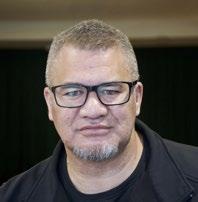
● The Effects of Displacement on Health (in locations in Jordan).
● Social Entrepreneurship (in Johannesburg, South Africa).
● Collective Leadership for Impact (in Oxford, United Kingdom).
“It was amazing that the descendants of all of those histories and relationships were able to sit and share the same space to discuss and challenge; ideas, barriers and solutions. ”
BOYD BROUGHTON, Global Atlantic Fellow for Social Equity, who attended the Collective Leadership for Impact thematic convening in December 2022.
If you want to organize a thematic convening with a group of Global Atlantic Fellows and/or program staff, you can apply to the Atlantic Institute for support. We will ask for the following information:

● Who is in the key team? i.e., Fellows, staff, programs and potential consultants who will be working on the convening and their roles and responsibilities.
● A summary of the context of the event and its relevance to the community.
● The purpose of the convening with its proposed outcomes and/or learning objectives.
There is an application window each year advertised in the newsletters and on the Atlantic Fellows Hub. The Institute team draws up a shortlist after consulting staff from Atlantic Fellows programs. The proposals in the shortlist are then considered by a selection committee who make recommendations. The Atlantic Institute will make a final decision based on these recommendations. Successful applicants are given the opportunity to work with an Institute program and impact lead, who has experience in convening design, and an Institute convening coordinator, who will provide logistical support as well as arranging flights, accommodation and catering.
The Fellows-in-Residence program is an offering for people with experience in their field who might want to explore different possibilities with others in a similar position. The program will bring together a maximum of seven Fellows and two board members or Atlantic Fellows program staff, so you can work closely with one another for one to two weeks in Oxford. Residencies may also offer opportunities for certification from partners and collaborators.
The primary purpose is to draw exceptional and experienced Fellows at a pivotal point in their life journey into a collective program. You can find inspiration and strength from a group of peers in considering and developing their own work as well as better understanding inequities at a global and multisectoral level.
● To create a space for lifelong learning, particularly for those at a later stage in their career.
● To create the right conditions for following your curiosity with a group.
● To draw on the “edge effect”: ie., where the edges of two ecosystems meet, there is the greatest chance of “biodiversity” to create new forms of thinking and action.
● To create opportunities for deeper collective reflection with others at pivotal points in their lives.
● To support those who struggle with burnout and sacrifice syndrome.
● To create opportunities for group discussion about how to navigate complex exits and new entry points.
The Institute offers bespoke training and skills development events, usually in response to requests from Fellows and the Atlantic program staff. We promote them on the Hub, in emails and in WhatsApp messages. They can be online or face to face, and vary in length and depth. Previous sessions have included sessions on narrative change, meta leadership, fundraising and policy change, amongst others. To take part in the events, you simply register for them on the Hub.
Learning Labs are places where Global Atlantic Fellows can reflect on processes and projects with a group of other Fellows to foster and cultivate best practices within the community. These sessions can be in-person or virtual. Nine out of ten respondents who attended a Learning Lab said that it created an “inclusive and inspiring” learning experience. Fellows reported that they benefited from the opportunity to share, learn and connect across programs. One Fellow said: “It is affirming to know that we may be separated by borders and seas but we face similar challenges and we all want to make a difference.”
We work with the Rockwood Leadership Institute, a U.S.-based organization that provides leadership training opportunities throughout the year. The Rockwood Leadership Institute is known for delivering best practices and leadership development methods to nonprofit communities. Its vision is to develop thousands of social change agents trained in partnership, communication, conflict resolution, team building and planning to produce powerful results. The Atlantic Institute offers sponsored places throughout the year for Fellows to attend Rockwood’s virtual training sessions.
All Fellows who took the course, The Virtual Art of Leadership, said the training “exceeded their expectations” for a leadership training experience. Some 83 percent of Fellows said they would strongly recommend The Virtual Art of Leadership training to colleagues in the nonprofit sector.
In partnership with Metafuture (www.metafuture.org ), an educational think-tank that explores futures-oriented issues, we offer Fellows and program staff the opportunity to become a futurist. Learn how to study and predict the future, especially on the basis of current trends.
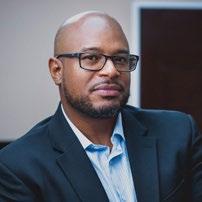
Become a Futurist is a self-paced online course led by Professor Sohail Inayatullah, a world-leading futurist, who shows how to approach futures thinking and practice (theories, methods, tools and processes), based on the “Six Pillars” model. This model looks at alternative and preferred futures, and the world views and myths underlying them.
We offer access to the Become a Futurist online course and certification from CFAR (the Center of Futures Intelligence and Research). If you choose to study for the award of the certificate, you will be supported with the writing process. Gaining the certificate is beneficial because it should allow you to operate comfortably in the Futures field.
“ The facilitators at Rockwood Leadership Institute fostered a safe space for critical reflection on leadership and how concepts such as purpose, power, partnerships and personal ecology influence how we show up as leaders in our communities. The week of training provided many rejuvenating moments as well as practical tools to improve leadership skills. ”
KEVIN LIVERPOOL, Global Atlantic Fellow for Social and Economic Equity

We believe the future landscape of social justice will be shaped by XR (Extended Reality), or what some refer to as the embodied internet, web three or the metaverse. Just as those furthering equity throughout history have harnessed the power of traditional technologies to uplift communities and ideas, we believe the movement toward equity will be strengthened and celebrated using emerging technologies. As societies rely increasingly on virtual platforms, virtual spaces can become spaces of liberation and freedom; and can lessen the impact on the environment so that flying around the world doesn’t feel like the only route to a thriving community.
The future of this innovation will affect us all, and who shapes it in the coming years will have an impact on how future generations navigate their lives. We believe it is crucial that this new digital world is built by those seeking to create equitable futures; therefore, it is vital that our global community is made up not of passive recipients of emerging technologies but at the cutting edge of them, equipped with the networks, architecture and resources to co-create, critique and champion our futures in XR. As Shirley Chisholm, the civil rights activist and first Black woman to be elected to the United States Congress, said: “If they don’t give you a seat at the table, bring a folding chair.” In some ways, our work in XR is our “folding chair,” a place where we can develop critical and constructive thought, and build the future.
We provide spaces of programming, conversation and engagement around XR technologies, bringing into sharp relief the contradictions and opportunities for us all whilst engaging with leading thinkers and doers. We host residencies, workshops and run talks and events, with the hope of inspiring you and bringing new possibilities to creative ideas that previously would have felt impossible.

The Atlantic Institute has also established an intentional space in the “reimagined” Rhodes House, in Oxford, for testing, creating and expanding the boundaries of XR technology.

The XR Lab is a place to gather and explore new technology, borrow equipment and be supported to learn how XR can strengthen your equity work. You can use spatialized platforms to connect virtually with each other to find out how, as a global community, we can be meaningfully together when we are physically apart. The Lab will be connected to other spaces across the world that will hold technology and equipment.
Whether you are part of a group keen to develop augmented solutions to post-surgery recovery, or creative activists developing a 360-degree film about racial bias, you will have the space, equipment and, if required, external expert support to develop your work and share it with the community and beyond. In time, we envision an archive of thought-provoking virtual experiences created by our community to forge a better world.
Like the technology itself, our engagement in this area is emerging, so please reach out directly to the Extended Reality lead, Alice Wroe, with any ideas, questions or proposals at: alice.wroe@atlanticfellows.org
“ The Institute is keen to support Fellows who want to contribute or lead on community events every step of the way. We welcome requests from Fellows who want to host events in collaboration with us. Indeed, we greatly encourage this as the strength of this community lies with the Fellows. ”
KHALIL GOGA, Atlantic Institute Associate Executive Director, Community and Programming
Given the growing inequities between the African continent and the rest of the world, the Atlantic Institute has committed to providing additional resources for African Fellows and those working on the continent. This approach is currently in a pilot phase to test how best to support the community of Atlantic Fellows, both in response to immediate needs and also for making longterm strategic interventions that can catalyze collaborations among Fellows for greater impact and address the root causes of inequities. This is part of the broader Atlantic Institute strategy to include a focus on regions as well as at a global level.
In taking an Africa-centered approach, we recognize the great diversity across the continent and celebrate this diversity as an asset that allows us to draw on the rich histories, Indigenous knowledge and experience of the continent to advance (k)new ways of addressing inequities. We want to provide opportunities for participants to consider the key issues that impact African Fellows.
Our approach currently focuses on these four pillars:
● To create greater opportunities to connect and get to know other Fellows who are part of the community living or working on the African continent.
● To give additional resources to support Fellows in Africa, particularly in relation to making physical space available to Fellows, as needed. Fellows are able to use space for a limited time at the Nelson Mandela Foundation, 107 Central Street, Houghton, Johannesburg, to host meetings or events either free of charge or at a reduced rate. Additional programming and skills workshops that account for the unique needs in Africa are also provided.
● To make Africa-specific offerings available that draw on local cultures and experiences to look at regional issues in depth and explore and strengthen connections between Fellows from the Global South and those in the African diaspora.
● To support partnerships in Africa with key organizations and institutions.
Global Atlantic Fellows in Africa have a dedicated program and impact lead (Africa), Patronella Nqaba, to assist with their work. Contact her at p.nqaba@atlanticfellows.org

Atlantic Institute grants are designed to support the collective work of Atlantic Fellows to achieve sustainable impact in addressing global inequities, based on the notion that collaborative work and the building of a network will be key to addressing systemic causes of inequity – locally, regionally and globally.
This support is currently in a pilot phase and will remain open to Global Atlantic Fellows until June 2025. Should significant impact be demonstrated, funding will continue.
The current funding opportunities available to you include:
Accessibility Grants: Available to individuals to support access to the global community. Up to £250 is available to help you meet costs that remove barriers to participation. Examples include but are not limited to the cost of data, telephone charges, childcare and self-care costs.
Solidarity Grants: Available to individuals and groups of Fellows for projects that help endangered and marginalized communities to combat the effects of COVID-19 and/or respond to global, regional and local crises such as natural disasters or conflict. Up to £5,000 is available.
The Collective Impact Fund is a suite of five grants that supports connection and collaboration, ideas development and innovation, the scale up and strengthening of projects, and funds to sustain projects for the long term. Some of the grants are available year-round while others are only available at specific times of the year. Grants that are part of the Collective Impact Fund focus on cross-program collaboration between Global Atlantic Fellows from at least two and ideally three different programs. You can find information about the different forms of funding on the Hub.
CHALEEN ARENDSE, Atlantic Fellow for Health Equity in South Africa, worked with two Fellows supported by a grant from the Collective Impact Fund

“ It was my first time working collectively with a fellow from a different country and fellowship program and the experience showed me the power of using each other’s skills and knowledge to achieve the goal of a project. ”
In response to the challenges of COVID-19, Global Atlantic Fellow for Health Equity U.S.+ Global, Jonatan Konfino, and Global Atlantic Fellow for Equity in Brain Health, Silvia Kochen, developed a new system to help hospitals in Buenos Aires pinpoint quickly the availability of beds and oxygen in the area to give patients the best chance of survival.

Scan the QR codes to watch more films about Fellows’ work supported by grants from the Institute.


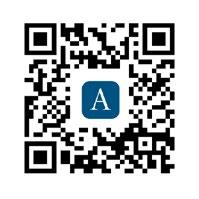
1 Fellows’ projects supported by Solidarity Grants from the Institute to support communities during COVID-19.
2 Music for Brain Health in Latin America and beyond with Copa Y Vida, an Institute-supported project involving five Global Atlantic Fellows from four programs.
You will receive invitations to events and convenings hosted by the Atlantic Institute to support you in your work and get to know other Atlantic Fellows and program staff worldwide. Please keep an eye on your email inbox, so you don’t miss out on these opportunities.
Although the newsletters and emails are sent to your preferred email addresses, you will need to use your @atlanticfellows.org account to access the Atlantic Fellows Hub, and register for the events and grants offered by the Atlantic Institute.
You can also find out more about joining events by visiting the Atlantic Fellows Hub or from the regular promotions in our regular newsletters, What’s On emails or from messages to the Atlantic Institute WhatsApp group.
Scan me! URL to the Atlantic Institute Update Whatsapp Group

Over the year, the Institute will send you around six “Global Atlantic Fellows Newsletters,” usually on the last Thursday of the month, as well as an “Atlantic Fellows Program Community Newsletter” in early December. The newsletters contain a welcome message from Atlantic Institute Executive Director Evie O’Brien, information about news and events, opportunities and grants, as well as recordings of workshops, podcasts, videos and photographs, and an update from the Atlantic Fellows programs. You also receive up to two “What’s On” events reminders monthly as well as invitations to some of our major offerings.
Our website atlanticfellows.org gives an overview of the global Atlantic Fellows program community, the seven distinct but interconnected programs and Fellows who, along with program staff, are working to advance fairer, healthier, more inclusive societies. You can learn about the work the Institute is doing to support Atlantic Fellows to connect and collaborate across programs for action, and read about some of the Fellows’ work focused on equity. The website hosts blogs, podcasts and films, and an interactive map to see where every Fellow who makes up this growing global community is based.
As part of the Institute’s remit to support Atlantic Fellows in connecting for collaboration and impact, dozens of podcasts have been recorded with Fellows from all seven programs in which they explain their vision, work and their commitment to advancing fairer, healthier, more inclusive societies. Most recently, the series “Conversations on Confidence” with Professor Ian Robertson, neuroscientist and founding director of the Global Brain Health Institute, and Fionnuala Sweeney, of the Atlantic Institute, features Fellows all over the world. They discuss their experiences of, and challenges with, confidence while also examining themes around equity, culture and the confidence of the collective as well as the individual.
The “In Conversation with Storycorps” series invited Atlantic Fellows from different countries to compare experiences in their work for equity. The “(K)new World Reimagined” series hears Fellows discuss how a post-COVID-19 world might impact racism and climate change and affect models of leadership and global solidarity. The “Being Human When Digital” series encourages the Global Atlantic Fellows community to be active rather than passive recipients of emerging technologies. These podcasts and more can be found on Atlantic Fellows SoundCloud at: soundcloud.com/atlanticfellows or on the Atlantic Fellows website.
More than 20 films shot in South Africa, Thailand, Indonesia, Brazil, Argentina and the United States feature Fellows who, with the support of Solidarity Grants, have pivoted in their daily work to help their communities withstand the COVID-19 pandemic. The films highlight the extraordinary commitment of Fellows. Their stories range from planting community food gardens in South Africa to bringing people who are isolated and living with cognitive impairment together virtually in Brazil and the United States. In Thailand, Fellows improved the design of a hospital, resulting in better care for patients throughout the pandemic. In Indonesia, by helping tourism survive in a local community, Fellows brought relief to local businesses. A film shot in Bueno Aires explains how Fellows from different programs worked on a system to quickly identify and release hospital beds to speed up treatment during the COVID-19 pandemic (see p.28).
“The Induction” film is an introduction to the global community and shares the history and vision behind the Atlantic Fellows. It demonstrates a sense of mission across the seven interconnected but distinct Atlantic Fellow programs and portrays a community pursuing collective action for equity. Additionally, there are films about gatherings, such as the thematic convening in Jordan in 2019 when Global Atlantic Fellows explored the effects of displacement on health. You can watch a selection of the films on the Atlantic Fellows website at atlanticfellows.org and Atlantic Fellows YouTube.
The following titles are available as digital copies on Knowledge Exchange and in Fellows’ Resources on the Hub. The “Global Community Book,” is an essential guide to find out more about the people who make up the Atlantic Fellows program community worldwide. Published annually, it contains the short biographies of every Fellow across the cohorts and programs since 2016. It also includes information about every staff member of the seven programs and the Atlantic Institute. Another title, “Our Founding Story,” charts the history of the fledgling Atlantic Fellows programs, based on interviews with the founders and shapers of the programs and the Institute.
Our digital channels continue to grow, reaching people across the world who are keen to learn about the work of Atlantic Fellows and the wider Atlantic Fellows programs community. Use our handles to follow us on social media to keep up with all the news and please share the posts with your own social circles.



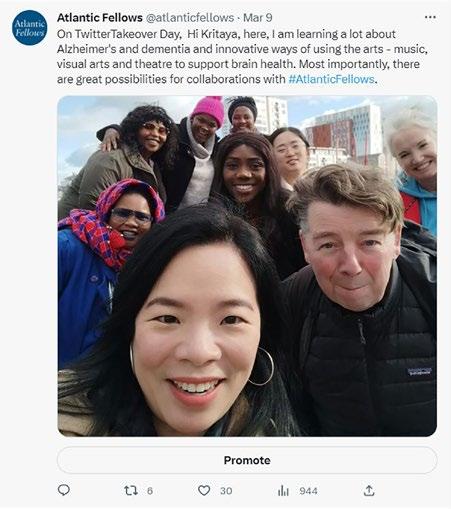
Our goal is to build a community in which members can connect with each other, sharing ideas, aspirations, resources, networks, experiences and projects. To achieve this, the Atlantic Institute analyzes, uses and protects information for the programs and Fellows. Our approach is opposed to the global and historical context of personal information appropriation; we regard any personal data that individuals choose to share with us as a gift. We are committed to using it only to serve that individual, our community and our mission. The information that you share with us as Fellows is protected by the U.K. Data Protection Act 2018 and the EU General Data Protection Regulation (2016/679). This protection is based on the Atlantic Institute’s legitimate interests in providing Atlantic Fellows and program staff with the networks, architecture and resources to connect, learn and act against the underlying systemic causes of inequality, both locally and globally. Furthermore, we take great care to ensure that the information reflects the ethical vision, inclusion, equity and respect that define our community.
At the Atlantic Institute, we do not sell any data to third-party organizations or process data for automated decision-making purposes. To learn more about your rights, how we use data, and when we share it, please refer to our Privacy Policy. You can access it through the Atlantic Fellows Hub here: af-hub.org/page/privacy-policy.
If you have any questions or concerns, please contact Daniel Salazar Murillo at: daniel.salazarmurillo@atlanticfellows.org
You will find the Institute’s latest Travel and Travel Expenses Policy on the Atlantic Fellows Hub at af-hub.org/page/travel-policy. The policy covers the rules and procedures for ensuring the authorization of travel plans, and processes around the bookings and travel expenses associated with Atlantic Institute business. As a Fellow traveling on Atlantic Institute business, you will be responsible for familiarizing yourself with the policy.
The Institute’s Anti-Harassment and Bullying Policy is also on the Atlantic Fellows Hub at af-hub.org/page/Anti-Harassment-Bullying-Policy. This policy explains the measures that the Atlantic Institute will take to provide an environment that is free from bullying and harassment.
To serve a diverse community of Global Atlantic Fellows from all over the world in the best way possible, the Institute harnesses the power of Fellows’ voices and the wide range of perspectives that they bring to the global community. The Global Atlantic Fellows Advisory Board (GFAB) is made up of 14 Global Atlantic Fellows, with two from each program, who advise the Atlantic Institute and contribute to the direction of our work, promoting and supporting our strategy and objectives. They also increase the Fellows’ awareness of the Global Atlantic Fellows community and encourage other Fellows to engage with it.
The board chair, or co-chairs, also serve as Global Atlantic Fellow representatives on the Atlantic Institute Governing Board. Members of GFAB may also be invited to participate as representatives on panels to discuss matters such as grants or awards, or for meetings about specific projects. The GFAB members serve for a period of two years. There will be a seven in and seven out rotation to maintain consistency and knowledge capture. No member serves more than two consecutive terms.
To apply to serve on GFAB, look out for information and calls for applications on our usual communications channels.
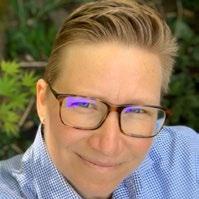

Alex is a proud Kabi Kabi djan (man), based in Naarm (Melbourne, Australia). He is the inaugural managing director of Bundyi Girri Consulting, a position that allows him to utilise First Peoples’ knowledge and perspectives while working with those seeking to advance their reconciliation maturity. For over a decade, Alex has focused on advancing social and economic outcomes of First Nations Peoples, specializing in the co-design, development and implementation of strategic policy frameworks that seek to facilitate social equity and economic prosperity for First Peoples.
Alex’s former roles include leading the development and implementation of several key policy reforms, including the Victorian Aboriginal Housing and Homelessness Framework and “Investing in the Relationship: Our Role in Indigenous Enterprise Flourishing” framework from RMIT (the Royal Melbourne Institute of Technology) University. Alex holds a master’s in social change leadership and a graduate certificate in education from the University of Melbourne, and a Bachelor of Human Nutrition.
Anne is an educator and advocate for well-being. Having focused on issues of equity, access and belonging in higher education earlier in her career, she has pivoted toward a broader understanding of compassion and well-being within systems. As the associate dean for well-being at the University of Washington School of Medicine in Seattle, Washington, her focus has been on developing novel supports for all members of the health care team during the COVID-19 pandemic. She is currently taking an ecosystem approach to addressing issues of well-being at the systemlevel within health care.
Bayanda works toward social cohesion and inclusion for Triangle Project as a political advocacy coordinator. He is charged with the smooth running, monitoring and implementation of the Political Advocacy Program to advance the civil, political and electoral participation of LGBTQI+ people in local and national decision-making processes. He is passionate about tackling socioeconomic and educational inequalities within South Africa and the continent at large.

Cyan is a medical doctor with a passion for helping build healthier, more inclusive and more sustainable health care systems and communities. She completed her medical training at the University of Pretoria, South Africa, and her master’s in public health with a global health specialization through King’s College London. Her work focuses on the intersection of climate change, health innovation and gender equality. Cyan currently serves on the Atlantic Institute Governing Board and is co-chair of the Global Atlantic Fellows Advisory Board. Cyan is the founder of Women Leaders Planetary Health in South Africa and the Global Women in Leadership Academy. Currently, she is a biodesign fellow at Stanford University where she hopes to develop skills to use health innovation as a tool for health equity.
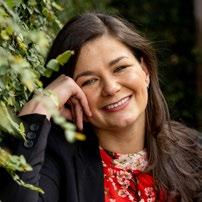
Dorah is the portfolio head for the municipal sustainability portfolio at the South African Local Government Association (SALGA). She has worked with a wide range of non-governmental organizations and different sectors, both in rural and urban settings. She has been involved in issues of sustainability since 2000, working with multi-stakeholder participatory initiatives involving communities, non-governmental and governmental organizations and other institutions in various sectors including smallscale agriculture, environment, climate change, renewable energy, gender and land rights at local, national and international levels.
Dorah was part of the GreenHouse Project that established an environmental sustainability demonstration center in inner-city Johannesburg, which she managed for five years. She founded GenderCC Southern Africa-Women for Climate Justice in 2008, in which she worked with women and gender civil society organizations, activists, and gender experts from the Southern African region on issues of women’s rights, gender and climate justice. She co-founded the Green Business College in 2017, a social enterprise based in Johannesburg dedicated to building “green” entrepreneurs by uniting green skills with business know-how. She is a director on the board of SEED Community, a nonprofit organization to support girls and young women to access higher education through a revolving study-loan fund, mentoring and coaching.
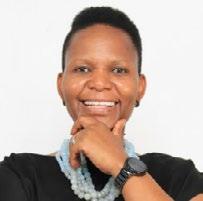

Jane is senior director of Women’s Empowerment and Gender Equality at The Asia Foundation, based in San Francisco. In this role, she provides intellectual and programmatic leadership for the foundation’s programs to empower women and advance gender equality in Asia and the Pacific, working with a team in San Francisco and Washington and with the foundation’s 18 country offices in the region. Her previous roles include vice president of Programs, Global Fund for Women (San Francisco), vice president of Development, Women’s World Banking (New York), and executive director of International Women’s Development Agency (Australia). She is a member of the advisory board of the Centre for Women, Peace and Security at the London School of Economics; the development committee of Women’s International League for Peace and Freedom (U.S.), and the international program committee of Episcopal Relief and Development.
Jane is a recipient of a Distinguished Alumni Award from the University of Adelaide, an alumni award for “service to humanity” from the University of Sydney, a Global Ambassador’s Award from the Advance Foundation, a Woman of Distinction Award from the Asia Pacific Women’s Business Council, a Churchill Fellowship, an Australian Award, and a Human Rights Medal from the Vietnam Women’s Union. She is one of the original 75 Australian climate change presenters trained by Al Gore.
Marcus has spent over 30 years supporting young Māori to reach their potential and aims to empower them as active agents in all areas of development in New Zealand society and beyond. He is the founder of the Tuia National Leadership Development Programme, which takes an intergenerational approach based on Indigenous principles to enhance the contributions of young Māori to communities across New Zealand.
In 2015, Marcus received the ACE Aotearoa Educator of the Year Tangata Whenua Award. He has also served as a director on the global board of directors for CIVICUS and as chair of the Pan-Commonwealth Youth Caucus. He is an honorary member of the Māori Women’s Welfare League. In 2022, Marcus received the prestigious Tupuānuku Award for Education as part of the national Matariki Awards celebration. Marcus is the Pouwhakatere, Deputy Secretary Māori at the Ministry of Justice. He leads a multidisciplinary business group called Ātea a Rangi, which focuses on specialized strategy, policy, capability and relationship management to help the ministry effectively partner with Māori.


Maritza is a neurologist based in Lima, Peru, who specializes in the prevention, timely diagnosis and proper management of dementia among vulnerable populations. She is member of the Latin American and Caribbean Consortium on Dementia (LAC-CD) and a multi-partner consortium to expand dementia research in Latin America. She was born and raised in an Andean, rural region of Peru, so is acutely aware of the health and social inequities affecting many rural regions. She trained in neurology at the National Institute of Neurological Sciences in Lima. Afterward, she had the opportunity to work in the underserved interior of the country for a remote community located near the border of Peru, an experience that motivated her to become an Atlantic Fellow for Equity in Brain Health. Currently, she is leading research into cognitive health and functionality in illiterate older adults in remote communities of Peru. She is a leader in the field of brain health promotion and dementia prevention, seeking to make changes in the most vulnerable regions of Peru and Latin America to contribute to the reduction of health inequities.

Khaulah is the network coordinator for Asylum Access, Malaysia’s aid program for refugees and people seeking asylum. Her work focuses on providing alternatives to immigration detention and widening access to health care for refugees in detention.
Raj is executive director of Maluk Timor, an Australian-Timorese nongovernmental organization that aims to transform health care in TimorLeste’s community health centers, so that people receive high quality care when and where they need it. Raj has a background in medicine, global public health, education and management. His specific interests are in the health of vulnerable populations and strengthening health systems in post-conflict settings. He has worked in Singapore, Sierra Leone and Timor-Leste. Raj enjoys reading and computer games, and loves cats and motorcycles (but not cats on motorcycles.)

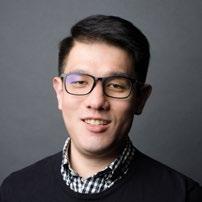
Peter is a multidisciplinary public health physician with the Ministry of Health and MERCY Malaysia. He works at the nexus of providing primary care to underserved populations, and developing and advocating evidence-based health policy and research. He aspires to use public health to disrupt the system in a responsible way to achieve the Sustainable Development Goals (SDGs) through health for all. He is incredibly passionate and enthusiastic about health equity, global health and humanitarian health.

Richard Wallace is a diversely talented artist and director with extensive experience in developing effective campaigns to engage and empower working-class Chicagoans. His knack for effective coalition building and fundraising means he has a unique ability to align organizational goals with mission, practice and desire to make a difference. He is driven by a passion for racial equity, empowering working-class Chicagoans in the fight against anti-Black racism in the U.S. and abroad, and building strategic coalitions and networks that reinforce a social mission through the betterment of the community. He is the founding executive director of Equity and Transformation (EAT).
Sarah is the executive director of the UCSF (University of California, San Francisco)/UC Law Consortium on Law, Science & Health Policy and a lecturer in law at UC Law in San Francisco. She also serves as a codirector of the Master of Science in Health Policy and Law Degree (HPL) and the policy director of the Medical-Legal Partnership for Seniors Clinic. She has dedicated her career to advancing health equity through law and policy. She has particular expertise in addressing the health and well-being of older adults within the complex care population.

Tracy is head of special programs at International Budget Partnership South Africa, where she supports grassroots organizations to advocate for dignified access to water, sanitation, and health care in informal settlements. Her work promotes transparency, inclusion and accountability in government budget processes, and she leads a pioneering initiative promoting gender-responsive procurement. Tracy is the inaugural Leader-in-Residence for Policy Change at the Atlantic Institute. She has a master’s in public policy and an undergraduate degree in economics and politics, both from the University of Cape Town.
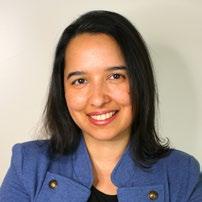
The Atlantic Institute team is here to support you. We can answer any queries you might have by setting up Zoom calls, via email or in person whenever we can.
ABI DIAMOND
abi.diamond@atlanticfellows.org
ASSOCIATE EXECUTIVE DIRECTOR, COMMUNICATIONS AND IMPACT
ALICE WROE
alice.wroe@atlanticfellows.org
EXTENDED REALITY LEAD
AMANDA ODUKA
amanda.oduka@atlanticfellows.org
PROGRAM AND IMPACT LEAD (GRANTS)
DANIEL SALAZAR MURILLO
daniel.salazarmurillo@atlanticfellow
DATA INSIGHT ANALYST
DAVID MALLINSON
d.mallinson@atlanticfellows.org
TEAM COORDINATOR (CONVENINGS)
FIONNUALA SWEENEY
f.sweeney@atlanticfellows.org
MULTIMEDIA EDITOR
JEMMA STRINGER (CURRENTLY ON PARENTAL LEAVE); YAN CHEN (PARENTAL COVER)
jemma.stringer@atlanticfellows.org
yan.chen@atlanticfellows.org
PROGRAM AND IMPACT LEAD (INNOVATION AND SPECIAL PROJECTS)
KATHERINE BOND
katherine.bond@atlanticfellows.org
PARTNERSHIPS LEAD
KIM OOI
kim.ooi@atlanticfellows.org
TEAM COORDINATOR (GRANTS AND FUNDING)
KHALIL GOGA
k.goga@atlanticfellows.org
ASSOCIATE EXECUTIVE DIRECTOR, COMMUNITY AND PROGRAMMING
LUCY MERCER
lucy.mercer@atlanticfellows.org
COMMUNICATIONS EXECUTIVE
MARIA JEFFERY
m.jeffery@atlanticfellows.org
COMMUNICATIONS LEAD
MEL NASH
finance@atlanticfellows.org
FINANCE COORDINATOR
PATRONELLA NQABA
p.nqaba@atlanticfellows.org
PROGRAM AND IMPACT LEAD (AFRICA)
SHANJITHA RAJASINGAM
shanjitha.rajasingam@atlanticfellows.org
TEAM COORDINATOR (CONVENINGS)
SUKH SANGHERA
s.sanghera@atlanticfellows.org
TECHNOLOGY PLATFORMS LEAD
TANYA CHARLES
t.charles@atlanticfellows.org
PROGRAM AND IMPACT LEAD (FELLOW ENGAGEMENT)
TO CONTACT THE OFFICE OF THE EXECUTIVE DIRECTOR
EXECUTIVE ASSISTANT TO THE EXECUTIVE DIRECTOR
executive.assistant@atlanticfellows.org
EVIE O’BRIEN
e.obrien@atlanticfellows.org
EXECUTIVE DIRECTOR
PHOTOS
Front cover: Global Atlantic Fellows at the thematic convening, Collective Leadership for Impact, Oxford, December 2022. Credit: Lee Atherton.
Page 9: L-R, Rafi Hadad,Global Atlantic Fellow for Equity in Brain Health; and Abdel Jamal Disangcopan, Global Atlantic Fellow for Health Equity in Southeast Asia. Credit: Lee Atherton.
Pages 12-13: The Global Atlantic Fellows Annual Convening 2022, in Thailand. Credit: Jack Taylor.
Page 14: L-R, Angela Rutter, Global Atlantic Fellow for Social Equity; and Betsy Hodges, Global Atlantic Fellow for Racial Equity.
Page 18: Richard Wallace, Global Atlantic Fellow for Racial Equity, addresses other Fellows at the thematic convening, Global Justice and Transformation: New Zealand and the Maori Experience, January 2023. Credit: Hineani Roberts.
Page 20: Global Atlantic Fellows at the thematic convening, Collective Leadership for Impact, Oxford, December 2022. Credit: Lee Atherton.
Page 24: Concept drawing of the XR Space, Rhodes House, Oxford.
Page 26: Johnny Miller, Global Atlantic Fellow for Social and Economic Equity, working on location in Lima, Peru. Credit: Alex Kornhuber, Global Atlantic Fellow for Equity in Brain Health.
Page 28: L-R, Jonatan Konfino, Global Atlantic Fellow for Health Equity U.S. + Global; and Silvia Kochen, Global Atlantic Fellow for Equity in Brain Health. Credit: Pablo Goldberg.
Rhodes House
South Parks Road
Oxford OX1 3RG
United Kingdom
Email atlantic.institute@atlanticfellows.org
Web atlanticfellows.org
Social
@atlanticfellows
@atlanticfellows
@atlanticfellows
@atlanticfellows